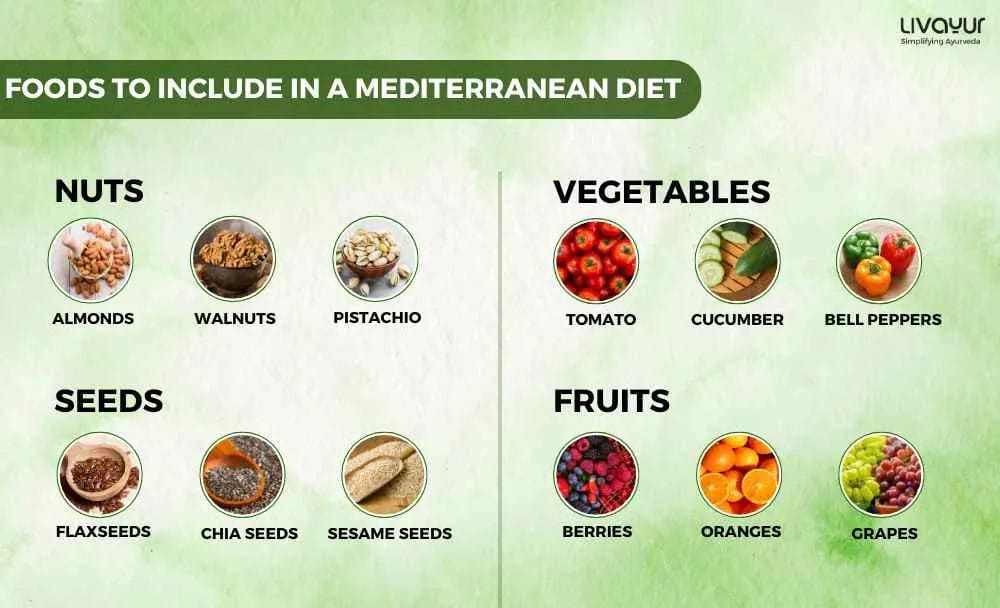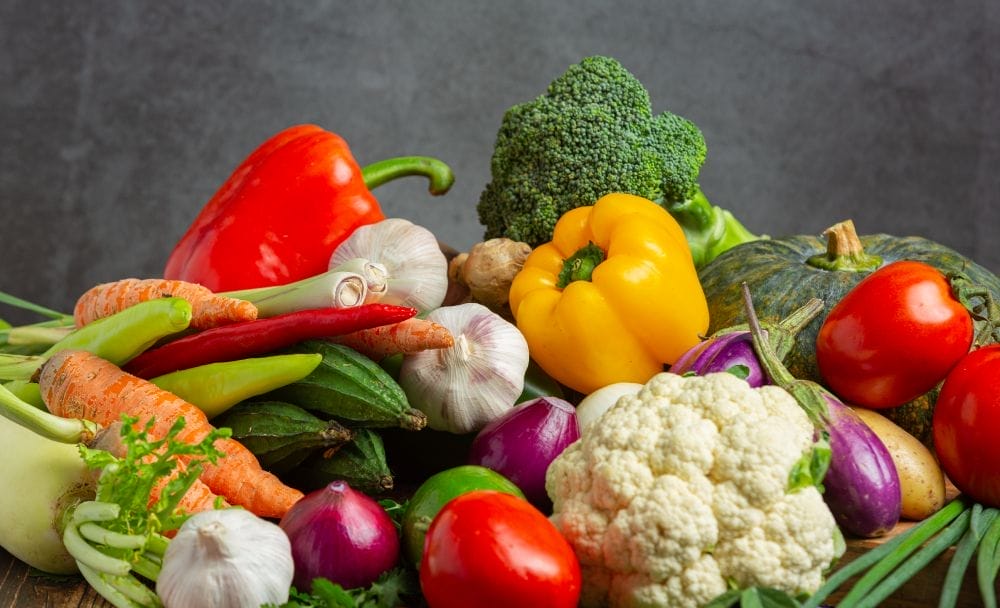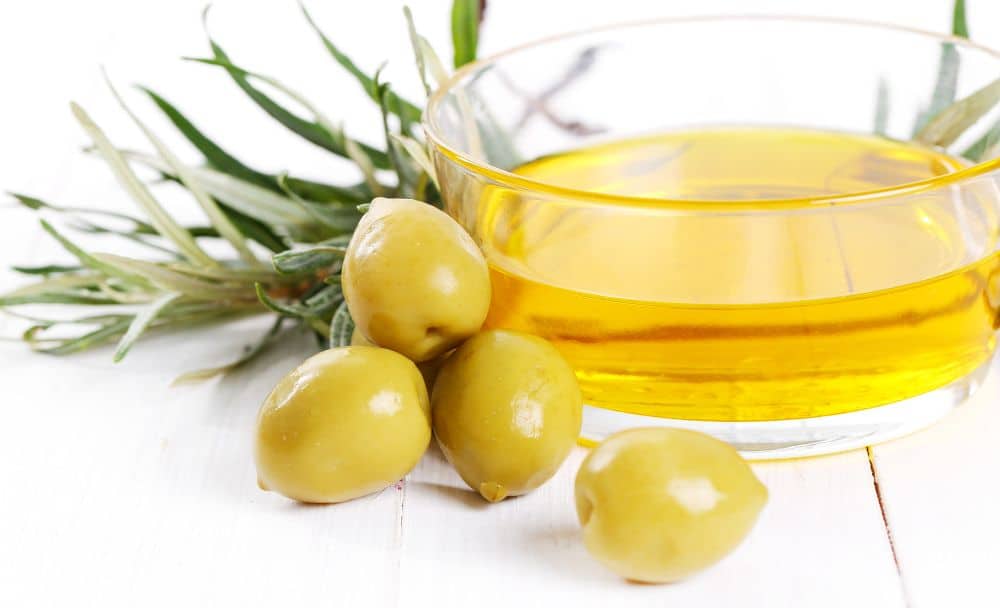
In today’s fast-paced world, fad diets come and go. However, one approach to healthy eating has stood the test of time—the Mediterranean diet. Renowned for its health benefits and delicious flavors, this dietary pattern takes inspiration from the eating habits of countries bordering the Mediterranean Sea.
The Mediterranean diet emphasizes whole foods, lean proteins, abundant fruits and vegetables, and healthy fats. In this article, we will delve into the critical elements of the Mediterranean diet and provide a comprehensive food list. We will also outline a practical diet plan to help you adopt this balanced and nourishing way of eating.
What is the Mediterranean diet?
The Mediterranean diet is not just another passing diet trend. It is a way of life rooted in the traditional eating patterns of people living in Mediterranean countries like Greece, Italy, and Spain. What sets this diet apart is its emphasis on whole, unprocessed foods abundant in the region.
Instead of focusing on strict rules or calorie counting, the Mediterranean diet revolves around making mindful choices and enjoying a variety of flavors. The Mediterranean diet includes consuming fruits, vegetables, whole grains, legumes, nuts, and seeds. These plant-based foods provide essential nutrients, fiber, and antioxidants that contribute to overall health.
In addition, the diet includes moderate amounts of lean proteins like fish and poultry, while minimizing red meat consumption. The balanced approach to protein intake helps maintain muscle mass and provides essential amino acids.
One defining characteristic of the Mediterranean diet is the inclusion of healthy fats, particularly extra-virgin olive oil. This prized oil is rich in monounsaturated fats, which help in reducing the risk of heart disease. Nuts and seeds, another source of beneficial fats, are also an integral part of this dietary pattern. [1] [2]
What is the food list for the Mediterranean diet?
The food list for the Mediterranean diet contains delicious and nourishing ingredients. Here are some critical components of the Mediterranean diet food list: [1] [2]
- Fruits and vegetables
Consume fresh, seasonal fruits and vegetables. Enjoy vibrant options like tomatoes, cucumbers, leafy greens, bell peppers, berries, oranges, and grapes. These provide essential vitamins, minerals, and antioxidants.

- Whole grains
Consider whole grains like whole wheat, oats, and barley. These fiber-rich choices offer sustained energy and promote digestive health.
- Legumes
Add legumes like chickpeas, lentils, beans, and peas to your meals. They are excellent sources of plant-based protein, fiber, and minerals.
- Nuts and seeds
Snack on a handful of almonds, walnuts, pistachios, or seeds like flaxseeds, chia, and sesame. These provide heart-healthy fats, protein, and micronutrients.
- Fish and seafood
If you are non-vegetarian, include fatty fish like salmon, sardines, and mackerel. These are high in omega-3 fatty acids that promote brain health and reduce inflammation.
- Poultry and eggs
If you are non-vegetarian, get moderate portions of chicken, turkey, and eggs as lean protein sources. Choose organic or free-range options whenever possible.
- Healthy fats
Use extra-virgin olive oil for cooking. It has monounsaturated fats and antioxidants. Additionally, consume avocados and olives for their beneficial fats.
- Herbs and spices
Enhance the flavors of your dishes with aromatic herbs and spices like basil, oregano, rosemary, garlic, and turmeric. They add depth and complexity to your meals without excessive salt.
What is the diet plan for the Mediterranean diet?
The Mediterranean diet doesn’t adhere to strict rules or rigid meal plans. However, it offers a flexible framework for healthy and balanced eating patterns. Here’s a general diet plan to help you get started on your Mediterranean journey: [1] [2]
- Emphasize plant-based foods
Make fruits, vegetables, whole grains, and legumes the foundation of your meals. Fill at least half of your plate with these nutritious options.
- Incorporate fish and seafood
If you are non-vegetarian, eat fish at least twice a week. Choose salmon, sardines, or mackerel, which are high in omega-3 fatty acids. Enjoy grilled, baked, or steamed preparations for maximum flavor and health benefits.
- Moderate poultry and eggs
If you are non-vegetarian, consume poultry and eggs in moderation. Focus on lean cuts of chicken or turkey and incorporate eggs as a versatile protein source. Limit red meat consumption and choose lean cuts when you do indulge.
- Healthy fats
Opt for cooking with extra-virgin olive oil for salad dressing or drizzling over cooked vegetables. Add small portions of nuts and seeds to your meals for additional healthy fats.

- Flavor with herbs and spices
Use herbs and spices generously to season your dishes. They add depth and flavor without relying on excessive salt or unhealthy seasonings.
Mediterranean diet and Ayurveda
Mediterranean diet and Ayurveda are two distinct dietary approaches with different cultural origins. However, there are some interesting parallels between them. Both emphasize the consumption of whole, unprocessed foods and prioritize the importance of balance in achieving optimal health.
The Mediterranean diet focuses on fresh, seasonal fruits, vegetables, lean proteins, and healthy fats. Similarly, Ayurveda encourages a diet rich in fruits, vegetables, whole grains, and legumes, while also considering individual Dosha’s, in meal planning.
Both dietary philosophies recognize the value of mindful eating, savouring each bite, and enjoying meals in a relaxed setting. They also promote using herbs and spices for their flavour-enhancing properties and potential health benefits.
FAQs
What are Mediterranean diet recipes?
Mediterranean diet recipes include dishes inspired by the culinary traditions of countries bordering the Mediterranean Sea. Some popular Mediterranean recipes include Greek salad, roasted vegetables with herbs, grilled fish with lemon and spices, and chickpea and vegetable stew.
What do you eat on a Mediterranean diet?
On a Mediterranean diet, you eat a variety of unprocessed foods typical of the Mediterranean region. It includes fruits, vegetables, whole grains, legumes, nuts, and seeds. You’ll also consume moderate amounts of fish, poultry, eggs, and dairy products while minimizing red meat.
Why is the Mediterranean diet so healthy?
The Mediterranean diet emphasizes whole, nutrient-rich foods that provide vitamins, minerals, and antioxidants. The diet’s focus on plant-based foods, healthy fats, and lean proteins contributes to heart health and weight management.
What is the healthiest Mediterranean food?
While all Mediterranean foods offer health benefits, some are renowned for their nutritional value. Extra-virgin olive oil is a healthy fat due to monounsaturated fats and antioxidants. Fatty fish like salmon is an excellent sources of omega-3 fatty acids that promote heart’s health.
Conclusion
The Mediterranean diet offers a delicious and sustainable approach to healthy eating. With its focus on whole, unprocessed foods, abundant fruits and vegetables, and lean proteins, this dietary pattern provides numerous health benefits and promotes wellbeing. Adopting the Mediterranean diet will help you nourish your body with nutrient-rich foods and reduce the risk of chronic diseases.
Whether you want to improve heart health, manage weight, or embrace a wholesome lifestyle, the Mediterranean diet offers a balanced and enjoyable path to achieving your goals. So, embark on this Mediterranean journey and discover the lifelong benefits of this remarkable way of eating.
Disclaimer
The information provided here is not intended to replace professional advice or treatment.
References
- What is the Mediterranean Diet? 09 January 2020
- Take Your Diet to the Mediterranean
















